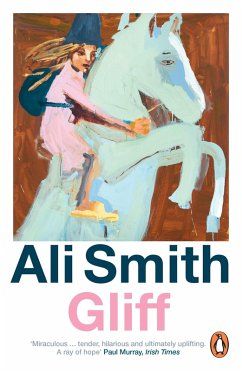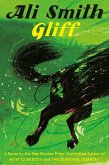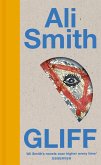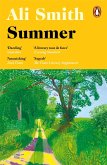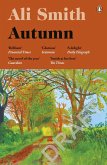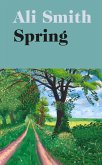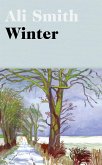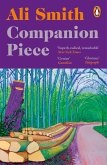'Miraculous . . . tender, hilarious and ultimately uplifting. A ray of hope' Paul Murray, Irish Times
Once upon a time, not very far from now, two children come home to find a line of wet red paint round the outside of their house . . .
So begins the freewheeling and urgent new novel from Ali Smith - the story of two young people and a horse called Gliff, on the run from history as it takes a turn for the worse.
'A voice that moves with lightness and precision, where bravery and goodness triumph in spirit over jeopardy and fear' Financial Times
'One of Smith's most propulsive stories - a dark adventure with high stakes, which is still a sparklingly crisp read. A new Ali Smith book is always an event' Holly Williams, i
'Ali Smith's marvellous Gliff considers the complexities of our present moment and the thorny, bridling potential of possible futures with wit, care and craft. A masterpiece of storytelling about storytelling, exploring the delighting, dangerous power of language and connectivity' Eley Williams
LONGLISTED FOR THE 2024 HIGHLAND BOOK PRIZE
Once upon a time, not very far from now, two children come home to find a line of wet red paint round the outside of their house . . .
So begins the freewheeling and urgent new novel from Ali Smith - the story of two young people and a horse called Gliff, on the run from history as it takes a turn for the worse.
'A voice that moves with lightness and precision, where bravery and goodness triumph in spirit over jeopardy and fear' Financial Times
'One of Smith's most propulsive stories - a dark adventure with high stakes, which is still a sparklingly crisp read. A new Ali Smith book is always an event' Holly Williams, i
'Ali Smith's marvellous Gliff considers the complexities of our present moment and the thorny, bridling potential of possible futures with wit, care and craft. A masterpiece of storytelling about storytelling, exploring the delighting, dangerous power of language and connectivity' Eley Williams
LONGLISTED FOR THE 2024 HIGHLAND BOOK PRIZE
Here is a voice that moves with lightness and precision, where bravery and goodness triumph in spirit over jeopardy and fear . . . Smith is good at fable-ising, and at taking a young perspective in order to question afresh systems and inherited knowledge . . . Smith's fiction teaches with vitality that there is no such thing as a futile question Financial Times

